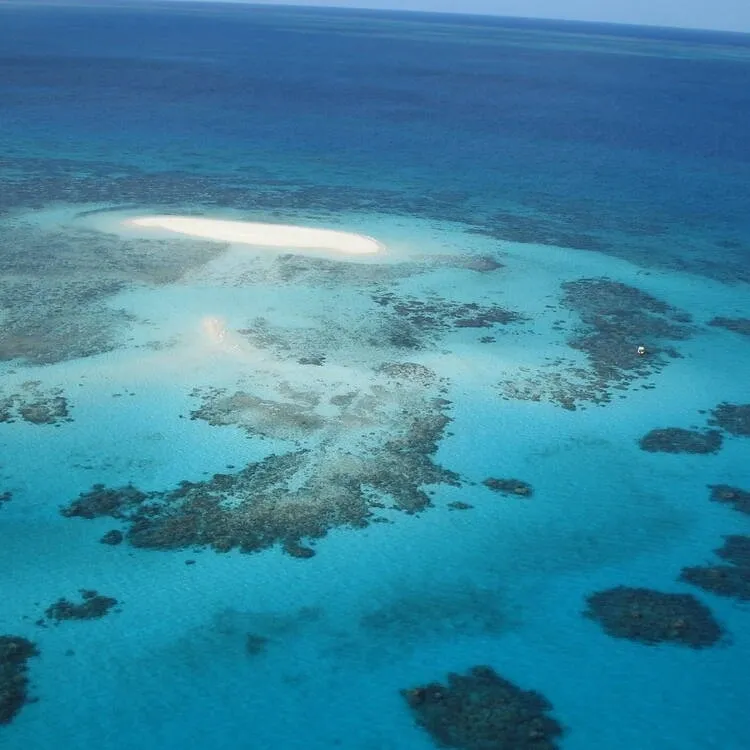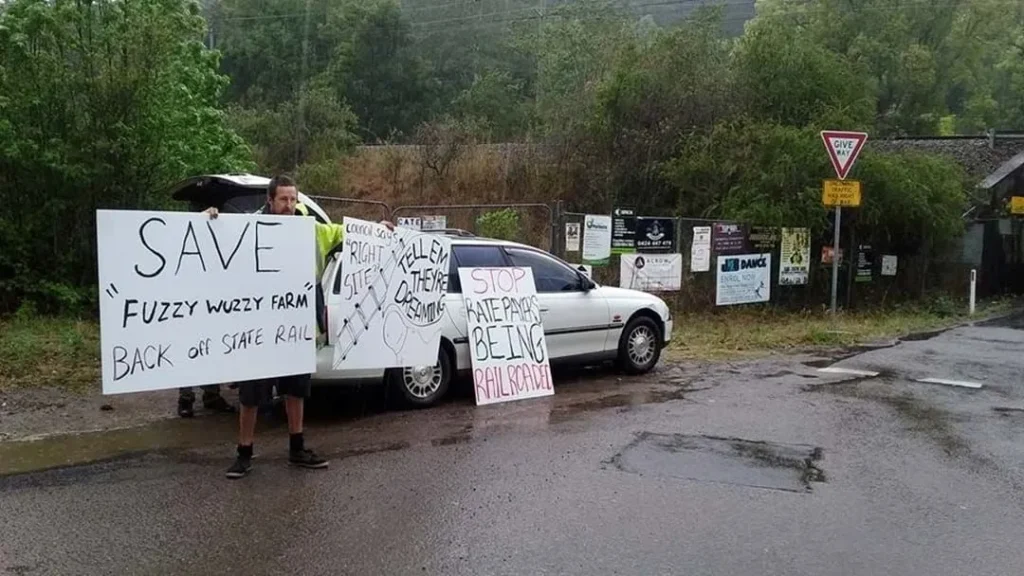
Australian businessman and politician Clive Palmer has proposed a new coal mine that environmental groups are saying will most likely impact the Great Barrier Reef prompting the Federal Minister for the Environment and Water, Tanya Plibersek, to propose blocking the coal mine.
By Harry Mulholland
The Central Queensland Coal Project in Styx Basin, between Mackay and Rockhampton, will be an open-cut mine with a rail connection to the Queensland Rail North Coast Line.
The Project intends to initially mine 2 Metric Tons per annum (Mtpa) of run-of-mine coal which when processed, will produce 1.5Mtpa of semi-coking coal.
Central Queensland Coal outlines on its website that the project will initially commence operations with a 1Mtpa open-cut mine, ramping up to 10Mtpa over the next 20 to 25 years.
A new report from the Australian Marine Conservation Society (AMCS) shows the impact the mine could have on the Great Barrier Reef: fine sediments from the mine could be carried by currents and tides into the Great Barrier Reef World Heritage Area, which is 10km away from the mine site.
The report states the sediment potentially carried into the reef could endanger the already threatened dugongs and turtles that feed and breed in the area.
AMCS Great Barrier Reef Campaigner, Cherry Muddle, said their reports show there is too much at risk to allow Central Queensland Coal to build and operate an open cut coal mine so close to the Reef World Heritage Area.
“Federal Environment Minister Tanya Plibersek must reject the mine on environmental and climate grounds.
Habitats at risk
“Broad Sound, just downstream from the proposed mine site, is an area rich in marine life, including species important for commercial and recreational fishing like barramundi and mud crabs.
“Habitats like mangroves and seagrass are found there or nearby, these are key habitats for marine wildlife and important carbon sinks.
“Our report shows the tides and currents of Broad Sound could carry fine sediment released from the mine to these important habitats, smothering them, risking impacts on the protected migratory species that rely on them, like dugongs or flatback turtles,” Muddle said.
ACMS says the tidal regime of Broad Sound was not assessed or quantified by Central Queensland Coal in their Environmental Impact Statement (EIS).
Climate threat
Muddle said the mine would also contribute to the climate crisis, which is the biggest threat facing the Great Barrier Reef.
“Our Reef recently suffered through its fourth mass bleaching event since 2016, driven by a marine heatwave.
“If we want a future with the Reef in it, we must rapidly move to 100 per cent renewable energy.
“This means not approving any more coal mines, especially one like the Central Queensland Coal mine which may have damaging and irreversible consequences for the Great Barrier Reef.
“In the wake of the State of the Environment Report, which showed Australian inshore reefs were in a poor and deteriorating condition due to pressures caused by the burning of fossil fuels and water pollution, a coal mine proposed this close to the Reef is a really bad idea,” Muddle said.
The AMCS’ report follows other published reports from scientists and the Queensland Government showing that sediments from the mine could be carried by the tides onto dense seagrass meadows in the Clairview dugong sanctuary, and the sea turtle nesting beaches at Avoid Island within a few weeks of being released.
The Queensland Government’s Environmental Impact Statement (EIS) released in April 2021 concluded the mine was not suitable to proceed due to unacceptable risks to the Great Barrier Reef.
Their report recommended Central Queensland Coal need to implement high-efficiency sediment basins into their plans deigned to capture sediment entrained in runoff by adding coagulants and flocculants to increase the settlement of suspended sediments to slow the flow of runoff and settle sediments before they reach the Great Barrier Reef.
In 2020, the Australian Government-appointed Independent Expert Scientific Committee (IESC) handed down an assessment of Central Queensland Coast, determining the project was not suitable to proceed due to its significant and irreversible impacts to the Great Barrier Reef and other significant ecosystems.
Independent advice
In its report, The IESC expressed numerous concerns that the project presents very significant risks to nationally and internationally recognised assets with high ecological values, including the Great Barrier Reef World Heritage Area and the Broad Sound Fish Habitat Area.
The report said other high-value environments near the site which may be affected by the project included Tooloombah Creek, Deep Creek, the Styx River estuary and two state-listed wetlands.
IESC said although Central Queensland Coal had undertaken substantial additional hydrological, water quality and ecological studies, many of the concerns highlighted reinforced the IESC’s extreme concerns that the predicted impacts were not readily mitigated, especially the discharge of mine-affected water into Broad Sound and the Great Barrier Reef.
According to the IESC, additional investigations, modelling and analyses would not alter the material risks associated with this project, and the IESC couldn’t envisage any feasible mitigation measures including offsets that could safeguard these irreplaceable and internationally significant ecological assessments and associated water resources.
Miner positive
Central Queensland Coal’s Managing Director, Nui Harris, said in a statement the Environmental Assessment report for the Central Queensland Coal Project prepared by the Department of Environment and Science provided a pathway for mine operators.
“Key areas to be addressed are project impacts to the receiving environment, ground water resources and the Bruce Highway, which have been largely dealt with within the Environmental Impact Statement.
“Central Queensland Coal will work closely with the Department to mitigate these impacts, with a view of applying for an environmental licence in the near future, to commence operations,” Harris said.
The Point reached out to Queensland Central Coal for further comments but was told everyone was out on-site and not available to comment on the matter.
Decision could be a first
The decision as to whether or not the mine goes ahead now falls on the shoulders of the Federal Minister for the Environment and Water, Tanya Plibersek, who has said she intends to clock the project.
In an official notice, Plibersek proposed to refuse the mine under the Environmental Protection and Biodiversity Conservation Act 1999 (EPBC) and invited the public to comment on the matter.
Plibersek told The Point she made the proposed decision on the Central Queensland Coal Mine a few weeks ago.
“I proposed to refuse it due to unacceptable impacts, including on the Great Barrier Reef.
“During the consultation period additional information was provided.
“This information is now being considered carefully.
“I will make a final decision on the mine soon,” Plibersek said.
In a statement to The Guardian, Plibersek said, based on the information available, she believed the project would have unacceptable impacts to the Great Barrier Reef marine park, and the values of the Great Barrier Reef World Heritage Area.
“The available evidence also suggests that the project would be likely to have unacceptable impacts on the water resources in the area.
“While I am seeking comment on my proposed decisions, and until I make my final decision on this project, I am unable to make any further statements on the matter,” Plibersek said.
Plibersek’s final comment will be made after considering recommendations from environmental scientists and the public, and if she blocks the project, it will be the first ever instance of a Federal Environment Minister rejecting a new coal mine proposal.
Queensland Conservation Council’s Director, Dave Copeman, is calling Plibersek’s likely decision to block the project a win for Queensland and the Great Barrier Reef.
“Building a new thermal coal mine 10 kilometres from the Great Barrier Reef World Heritage Area was an extreme, dangerous proposal, even for Clive Palmer.
“This is a sensible application of the Environmental Protection Biodiversity Conservation Act.
“This mine would have impacted on dugong and turtle habitats and been another unacceptable risk to the Great Barrier Reef.
“This prompt decision is a welcome change from the delayed and questionable decision-making approach of the previous Morrison Government.
“It looks like we now have a Minister that understands the science, is willing to listen to community concerns, and act accordingly.
“We won’t reach Australia’s 43 per cent 2030 emissions reduction targets that passed the House of Representatives without strong decisions such as this.
“This will be overwhelmingly positive news for the many locals and organisations who have been making clear the local and scientific opposition to this project,” Copeman said.
WHAT YOU CAN DO
The best way for the Australian community to reject the Central Queensland Coal project from going ahead is to voice your concerns over the project to Tanya Plibersek and Clive Palmer.
Another way is to voice your concerns to Central Queensland Coal, who can be contacted via their website.


